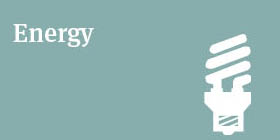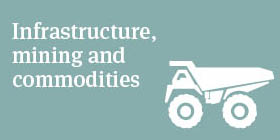
M&A activity in the energy sector will be driven in part by the transition to lower carbon energy sources as investors seek to future-proof their businesses or satisfy environmental, social and governance requirements. Growing activity is expected in the renewable heating and transport fuel sectors, as these sectors become the focus of policy interventions.
- In this context, continued M&A activity is expected in the offshore wind technology sub-sector with investments by funds, institutional investors, utilities and oil majors in projects across the life-cycle globally.
- Activity is foreseen across the oil and gas sector, whether upstream, midstream or downstream, as the industry continues to go through a period of asset consolidation and private equity investors look to realise their investments in the medium-term. Further consolidation is also expected as the LNG industry seeks to reduce costs and streamline operations to maintain competitiveness.
- The digitisation of the energy sector is gaining pace, with new ventures and start-ups proliferating, particularly to capture efficiencies offered by AI and blockchain-enabled trading platforms.
- Further restructuring by utilities is expected, driven by the greater need for system flexibility, consumer participation and the emergence of new business models. Acquisitions in complementary technology-related sectors are also likely, as energy supply businesses become increasingly data-driven.
- Further acquisitions in electric vehicle charging infrastructure and the wider supply chain are expected, driven by competition and collaboration between the global automotive industry, oil and gas majors and electricity suppliers.
- Related to this, M&A activity is likely to continue in the electricity storage market, particularly battery technology, extending from technology manufacturers into the mineral supply chain and storage control systems.
Case study
Norton Rose Fulbright advised ABN Amro, BP, Gunvor, ING, Koch Supply & Trading, Mercuria, Shell, Société Générale and Equinor in a corporate joint venture for the purpose of developing a commodities trading platform using distributed ledger technology. By managing physical energy transactions on a distributed ledger, the joint venture (now known at Vakt) aims to create a secure, trusted ecosystem for counterparty interaction, with anticipated gains in cybersecurity, operational efficiency and trade finance.
Return to M&A outlook 2019







